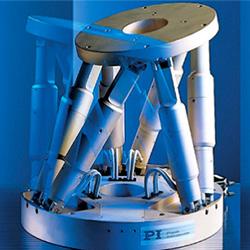REM Surface Engineering Featured in latest publication NASA’s 2022 Spinoff Magazine
REM Surface Engineering recognized in latest release of NASA's Spinoff 2022 publications.
FOR IMMEDIATE RELEASE
Brenham, Texas, (March 2, 2022) - REM Surface Engineering recognized in latest release of NASA's Spinoff 2022 publications. REM Surface successfully finished surfaces of 3D-printed metal parts under two Small Business Innovation Research (SBIR) contracts from Marshall in 2018 and '19, REM developed the ability to surface-finish parts printed from Inconel 625 and 718, popular nickel-based superalloys of interest to the agency and industry. The funding also helped the company develop surface finishing for JBK-75, an iron-nickel-based alloy, and NASA HR-1, a derivative of JBK-75 that's resistant to the high-pressure environment of hydrogen engines.
"REM is truly honored to be included in this year's NASA Spinoff highlights. Our work with NASA MSFC has been a fantastic opportunity to broaden our capabilities and technology offerings, and we are grateful to be playing a part in actualizing additive manufacturing as a fabrication technology for rocket engine applications," Michaud said.
About REM Surface Engineering
REM Surface Engineering, the inventor of the ISF® Process, the Rapid ISF® Process, the Extreme ISF® Process, and the REM® Process, is a global leader in providing surface engineering solutions. The REM's isotropic superfinishing technologies are value-adding and performance-enhancing improvements to conventional machining operations such as grinding and lapping. Founded in 1965 in Southington, CT by Robert Michaud, REM Surface Engineering is a family-owned company that has proudly been serving our partners and customers for over 50 years. REM Surface Engineering operates four locations in Brenham, TX, Southington, CT, Merrillville, IN, and St. Neots, UK that provide products and services globally.
To learn more about REM Surface Engineering, or to browse the brand-new website, please visit: www.remchem.com.
Media Contact: Christina Michaud
cmichaud@remchem.com
Featured Product

PI USA - 7 Reasons Why Air Bearings Outperform Mechanical Bearings
Motion system designers often ask the question whether to employ mechanical bearings or air bearings. Air bearings deserve a second look when application requirements include lifetime, precision, particle generation, reproducibility, angular accuracy, runout, straightness, and flatness.
